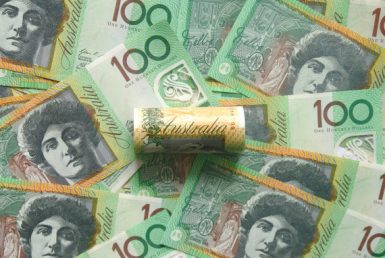Economic Stimulus Response Summary

FEDERAL GOVERNMENT
The Australian Government announced an ENHANCED economic response to the Coronavirus after their initial response on 12 March 2020. The Government’s consolidated package of $189 billion represents fiscal and balance sheet support across the forward estimates of 9.7 per cent of annual GDP.
The following summary combines all responses from the government as at 23 March 2020.
The Government’s economic response targets three key areas:
- Support for businesses
- Supporting the flow of credit
- Support for individuals and households
The bills were passed late Monday 23 March 2020 without objection in both the House of Representatives and the Senate after some amendments were made.
The amendments give the social services minister the power to make changes to the stimulus payments, including rates, means testing, eligibility and residency requirements.
WARNING NOTE: Please speak to your relationship manager at Bishop Collins before taking any action and for more information and clarity on how this will affect your business.
SUPPORT FOR BUSINESSES
BOOSTING CASH FLOW FOR EMPLOYERS
The Government is enhancing the “Boosting Cash Flow for Employers” measure it announced on 12 March 2020. The Government is now providing up to $100,000 to eligible small and medium-sized businesses, and not-for-profits (NFPs) that employ people, with a minimum payment of $20,000.
Small and medium-sized business entities with aggregated annual turnover under $50 million and that employ workers are eligible. NFPs, including charities, with aggregated annual turnover under $50 million and that employ workers will now also be eligible. Sole traders with employees are included.
Under the enhanced scheme, employers will receive a payment equal to 100 per cent of their salary and wages withheld (up from 50 per cent), for the period 1 January 2020 to 30 June 2020. The maximum payment is being increased from $25,000 to $50,000. In addition, the minimum payment is being increased from $2,000 to $10,000.
An additional payment is also being introduced in the July — October 2020 period. Eligible entities will receive an additional payment equal to the total of all of the Boosting Cash Flow for Employers payments they have received in the Jan 20 – Jun20 period. The additional payment will not be calculated on the July – October 20 salary and wages withheld. This means that eligible entities will receive at least $20,000 up to a total of $100,000 under both payments.
INCREASING THE INSTANT ASSET WRITE-OFF
The Government is increasing the instant asset write-off threshold from $30,000 to $150,000 and expanding access to include businesses with an aggregated annual turnover of less than $500 million (up from $50 million) until 30 June 2020. This proposal applies from 12 March 2020 until 30 June 2020, for new or second-hand assets first used or installed ready for use in this timeframe.
BACKING BUSINESS INVESTMENT (BBI)
The Government is introducing a time-limited 15 month investment incentive (through to 30 June 2021) to support business investment and economic growth over the short term, by accelerating depreciation deductions. Businesses with a turnover of less than $500 million will be able to deduct 50 per cent of the cost of an eligible asset on installation (targeted at assets greater than the Instant asset write off threshold of $150,000), with existing depreciation rules applying to the balance of the asset’s cost.
SOLE TRADERS WITHOUT EMPLOYEES
If you’re a sole trader and do not employ any staff you are eligible for:
- The increased instant Asset write-off above
- The backing business investment BBI above
- SME Guarantee scheme – refer below “Supporting the flow of credit”.
- Early access to superannuation. – refer below “Temporary early release of superannuation”
- Increased and accelerated income support – The government is temporarily expanding eligibility to income support payments to sole traders and establishing a new, time limited
Coronavirus supplement to be paid at a rate of $550 per fortnight in addition to income support amounts. This will be paid to both existing and new recipients of the eligible payment categories for the next 6 months. Sole traders and the self-employed can access the jobseeker Payment and Youth Allowance Jobseeker criteria with waiting times and means testing during this period, waived. The Coronavirus Supplement and expanded access for payments will commence from 27 April 2020.
For more detailed information please click on the following link: Support available for sole traders
SUPPORTING APPRENTICES AND TRAINEES
The Government is supporting small business to retain their apprentices and trainees. Eligible employers can apply for a wage subsidy of 50 per cent of the apprentice’s or trainee’s wage for 9 months from 1 January 2020 to 30 September 2020. Where a small business is not able to retain an apprentice, the subsidy will be available to a new employer that employs that apprentice. Employers will be reimbursed up to a maximum of $21,000 per eligible apprentice or trainee ($7,000 per quarter).
The subsidy will be available to small businesses employing fewer than 20 full-time employees who retain an apprentice or trainee. The apprentice or trainee must have been in training with a small business as of 1 March 2020.
SUPPORT FOR CORONAVIRUS-AFFECTED REGIONS AND COMMUNITIES
The Government will set aside $1 billion to support regions most significantly affected by the Coronavirus outbreak. These funds will be available to assist during the outbreak and the recovery. In addition, the Government is assisting our airline industry by providing relief from a number of taxes and Government charges estimated to total up to $715 million.
TEMPORARY RELIEF FOR FINANCIALLY DISTRESSED BUSINESSES
The economic impacts of the Coronavirus and health measures to prevent its spread will see many otherwise profitable and viable businesses temporarily face financial distress. It is important that these businesses have a safety net to make sure that when the crisis has passed they can resume normal business operations. One element of that safety net is to lessen the threat of actions that could unnecessarily push them into insolvency and force the winding up of the business.
The Government is temporarily increasing the threshold at which creditors can issue a statutory demand on a company and to initiate bankrupt proceedings against an individual as well as temporarily increasing the time companies and individuals have to respond to statutory demands they receive. The package also includes temporary relief for directors from any personal liability for trading while insolvent, and providing temporary flexibility in the Corporations Act 2001 to provide targeted relief from provisions of the Act to deal with unforeseen events that arise as a result of the Coronavirus health crisis.
The ATO will tailor solutions for owners or directors of business that are currently struggling due to the Coronavirus, including temporary reduction of payments or deferrals, or withholding enforcement actions including Director Penalty Notices and wind-ups.
SUPPORTING THE FLOW OF CREDIT
The Government, the Reserve Bank of Australia and the Australian Prudential Regulatory Authority have taken coordinated action to ensure the flow of credit in the Australian economy.
SUPPORT FOR IMMEDIATE CASH FLOW NEEDS FOR SMES
Under the Coronavirus SME Guarantee Scheme, the Government will provide a guarantee of 50 per cent to SME lenders to support new short-term unsecured loans to SMEs. The Scheme will guarantee up to $40 billion of new lending. This will provide businesses with funding to meet cash flow needs, by further enhancing lenders’ willingness and ability to provide credit.
QUICK AND EFFICIENT ACCESS TO CREDIT FOR SMALL BUSINESS
The Government is providing a temporary exemption from responsible lending obligations for lenders providing credit to existing small business customers. This reform will help small businesses get access to credit quickly and efficiently.
RESERVE BANK OF AUSTRALIA — SUPPORTING THE FLOW AND REDUCING THE COST OF CREDIT
The Reserve Bank of Australia (RBA) announced a package on 19 March 2020 that will put downward pressure on borrowing costs for households and businesses. This will help mitigate the adverse consequences of the Coronavirus on businesses and support their day-to-day trading operations.
The RBA announced a term funding facility for the banking system. Banks will have access to at least $90 billion in funding at a fixed interest rate of 0.25 per cent. This will reinforce the benefits of a lower cash rate by reducing funding costs for banks, which in turn will help reduce interest rates for borrowers. To encourage lending to businesses, the facility offers additional low-cost funding to banks if they expand their business lending, with particular incentives applying to new loans to SMEs.
In addition, the RBA announced a further easing in monetary policy by reducing the cash rate to 0.25 per cent. Following from this ANZ, CBA, NAB, and Westpac introduced lower rates for certain home loan products (mainly fixed mortgage rates).
Consider contacting your lender to see how your current mortgage rate has been affected.
SUPPORT FOR NON-ADI AND SMALLER ADI LENDERS IN THE SECURITISATION MARKET
The Government is providing the Australian Office of Financial Management (AOFM) with $15 billion to invest in structured finance markets used by smaller lenders, including non-Authorised Deposit-Taking Institutions (non-ADI) and smaller Authorised Deposit-Taking Institutions (ADI). This support will be provided by making direct investments in primary market securitisations by these lenders and in warehouse facilities.
AUSTRALIAN PRUDENTIAL REGULATORY AUTHORITY — ENSURING BANKS ARE WELL PLACED TO LEND
The Australian Prudential Regulatory Authority has announced temporary changes to its expectations regarding bank capital ratios. The changes will support banks’ lending to customers, particularly if they wish to take advantage of the new facility being offered by the RBA.
SUPPORT FOR INDIVIDUALS AND HOUSEHOLDS
The Government will provide significant payments to assist lower-income Australians, including pensioners, other social security and veteran income support recipients and eligible concession card holders.
INCOME SUPPORT FOR INDIVIDUALS
Over the next six months, the Government is temporarily expanding eligibility to income support payments and establishing a new, time-limited Coronavirus supplement to be paid at a rate of $550 per fortnight.
This will be paid to both existing and new recipients of Jobseeker Payment, Youth Allowance Jobseeker, Parenting Payment, Farm Household Allowance and Special Benefit.
The Government will immediately use additional powers given to the Social Services Minister to extend the $550 coronavirus supplement to students receiving Youth Allowance, Austudy and Abstudy payments.
PAYMENTS TO SUPPORT HOUSEHOLDS
The Government is providing two separate $750 payments to social security, veteran and other income support recipients and eligible concession card holders. The first payment will be made from 31 March 2020 and the second payment will be made from 13 July 2020. The second payment will not be made to those eligible for the Coronavirus supplement.
TEMPORARY EARLY RELEASE OF SUPERANNUATION
The Government is allowing individuals affected by the Coronavirus to access up to $10,000 of their superannuation in 2019-20 and a further $10,000 in 2020-21. Individuals will not need to pay tax on amounts released and the money they withdraw will not affect Centrelink or Veterans’ Affairs payments.
TEMPORARILY REDUCING SUPERANNUATION MINIMUM DRAWDOWN RATES
The Government is temporarily reducing superannuation minimum drawdown requirements for account-based pensions and similar products by 50 per cent for 2019-20 and 2020-21. This measure will benefit retirees with account-based pensions and similar products by reducing the need to sell investment assets to fund minimum drawdown requirements.
REDUCING SOCIAL SECURITY DEEMING RATES
On 12 March, the Government announced a 0.5 percentage point reduction in both the upper and lower social security deeming rates. The Government will now reduce these rates by another 0.25 percentage points.
As of 1 May 2020, the upper deeming rate will be 2.25 per cent and the lower deeming rate will be 0.25 per cent. The reductions reflect the low interest rate environment and its impact on the income from savings.
TIMING OF ASSISTANCE
| SUPPORT | DATE |
|---|---|
| Increased instant asset write off | Immediate. Deduction in 19-20 tax return. |
| Temporarily reduced minimum drawdown rates for superannuation | Immediate |
| Backing business investment — accelerated depreciation | Immediate. Deduction in 19-20 tax return. |
| First round of $750 payments to support households | From 31 March 2020 |
| Assistance for existing apprentices and trainees | Applications from early-April |
| Temporary early release of superannuation | Applications from mid-April |
| Income support and a Coronavirus supplement | From 27 April 2020 |
| First phase of Boosting Cash Flow for Employers | From 28 April 2020 |
| Increased transfer payments from reduced deeming rates | From 1 May 2020 |
| Second round of $750 payments to support households | From 13 July 2020 |
| Second phase of Boosting Cash Flow for Employers | From 21 July 2020 |
For more detailed information please click on the following link: Australian Government economic response
NEW SOUTH WALES GOVERNMENT
- $450 million for the waiver of payroll tax for businesses with payrolls of up to $10 million for three months (the rest of 2019-20). This means these businesses will save a quarter of their annual payroll tax bill in 2019-20
- $56 million to bring forward the next round of payroll tax cuts by raising the threshold limit to $1 million in 2020-21
- $80 million to waive a range of fees and charges for small businesses including bars, cafes, restaurants and tradies
- $250 million to employ additional cleaners of public infrastructure such as transport assets, schools and other public buildings
- more than $250 million to bring forward maintenance on public assets including social housing and crown land fencing
- $500 million to bring forward capital works and maintenance.
Click on the following for more information: NSW Government stimulus package
VICTORIAN GOVERNMENT
Premier Daniel Andrews on 21 March 2020 announced a three-stage assistance package worth about $1.7 billion.
Stage 1, $550 Million to go to 24,000 small and medium sized enterprises with payroll less than $3 million as follows;
- Payroll tax that was paid by eligible businesses in the first three quarters of this financial year will be handed back
- Businesses will be able to access the payroll tax cash refunds by next Friday, 27 March 2020
- Any payroll tax that is payable in the last quarter will be waived.
Stage 2 will involve another $500 million put into a fund for hardship payments, small grants and tailored support in consultation with Industry representatives of industries that are experiencing hardship.
Stage 3 worth more than $600 million includes a range of measures such as the waiving of venue liquor license fees and measures to support people who have lost their jobs.
Commercial tenants in government buildings will also be able to apply for rent relief, a measure the Government is encouraging private landlords to offer.
Click on the following for access to register your interest for more information: Victorian economic stimulus package
ACT GOVERNMENT
- A $137m stimulus package will target vulnerable households and small businesses in Canberra.
- Chief Minister Andrew Barr says it is likely the first of several stimulus packages to come.
- Arts and entertainment industries will receive dedicated support through the plan.
Click on the following link for more information: ACT Government Economic Stimulus package
QUEENSLAND GOVERNMENT
The Queensland government has yet to release an economic stimulus package similar to those announced by NSW and Victoria however the Premier announced on Sunday 22 March 2020 that the State’s budget review committee was meeting today Monday 23 March 2020. What has been promised to date is;
- $27.5 million for the tourism, agriculture and education sectors.
- $500 million in no interest business loans. Eligible businesses can access up to $250,000 with an initial 12 month interest free period.
- Businesses affected by COVID-19 with taxable wages of $6.5m or less will be eligible to extend the due date for the lodgement and payment of remaining 2019-20 payroll tax returns to 31 July 2020.
Click on the following link for more information: Queensland business support
BANKING ASSOCIATION RESPONSE
- On Friday 20 March 2020 The Australian Banking Association (ABA) says all small businesses hit by the coronavirus pandemic will be able to access a six-month deferral of all loan repayments.
- The Banking Association expects that will put $8 billion back in small business’ pockets.
- The banks will consider home loan relief measures if households enter mortgage stress.
- Please contact your bank or loan provider to understand the full terms and conditions.
Click on the following link for more information: Australian Banking Association relief package
AUSTRALIAN TAXATION OFFICE RELIEF
To assist businesses (including sole traders) experiencing financial difficulty as a result of COVID-19, the ATO are implementing the following relief options:
- Payment deferrals – If you or your business has been affected by COVID-19 you may be eligible to defer some payments and vary instalments you have due. These include your income tax, activity statement, pay as you go (PAYG) instalments, FBT and excise payments by up to six months.
- Monthly GST credits – If you report quarterly and you are due for a GST refund, moving to monthly reporting means you can get quicker access to GST refunds you are entitled to. However, you need to be aware there are conditions.
- PAYG instalments – If you are a quarterly pay as you go (PAYG) instalments payer you can vary your PAYG instalments on your activity statement for the March 2020 quarter. Taxpayers that vary their PAYG instalment rate or amount can also claim a refund for any instalments made for the September 2019 and December 2019 quarters. Where you choose to vary your PAYG instalments the ATO won’t apply penalties or charge interest to varied instalments for the 2019–20 financial year.
- Remitting interest and penalties – If your business is affected by COVID-19, the ATO will consider remitting interest and penalties incurred after 23 January 2020.
- Low interest payment plans – If your business has been affected by COVID-19 and you need help to pay your existing and ongoing tax liabilities, contact the ATO to discuss entering a low interest payment plan.
Click on the following link for more information: Australian Taxation Office relief
Multiple links have been provided above to give further detail. All sources are government or industry association links.
For more personalised advice and recommendations please contact our office at https://www.bishopcollins.com.au/contact-us/ or phone us on (02) 4353 2333.










